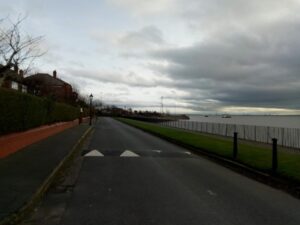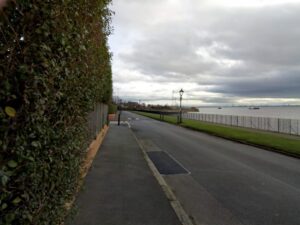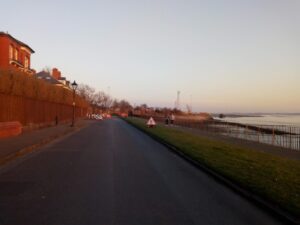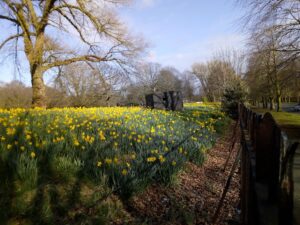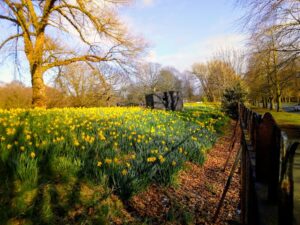Thoughts from early and mid-March 2020, written up later in the month. Posted 30 April 2020.
Including: The most controversial opinion of the Year – CATS is a Good movie and a decent musical.
A little more detail in the attached Word document.
Big money in US politics
The most educational thing about Michael Bloomberg quitting the race to be Democratic nominee for US President is the obscene amounts of money spent.
$500 million. Big money and guns are dual cancers in American politics. As I always say in Ukraine, imagine if those rich business people spent the money doing public works. Though it’s not like Russia using a whole state apparatus to do bad.
In solidarity with Harry & Meghan.
On January 9 I wrote: Watching ITV news at Ten, & reading the Daily Telegraph, the ‘Royal experts’ interviewed about Prince Harry & Meghan are a horrible nasty bunch of people, with maybe one exception. Only on a level with the Cabinet & current crop of Tory Farage MPs
Meghan & Harry I sympathise with though they’ve not been tactful with other members of the family. The establishment and right wing press has turned on them in nasty fashion, certainly the Daily Telegraph and the ‘Royal correspondents’ of TV and newspapers
Looking at the Daily Telegraph this morning what nasty horrible people attacking Harry. While on the ITV documentary last night, Sun photographer Arthur Edwards is such a nasty entitled embittered old man, & Sun editor Dan Wootton the smarmiest scumbag that you could invent.
13/01 I’ve been reading discussions about the controversial decision by Prince Harry and his wife Meghan to be less prominent members of the British Royal Family and spend more time in Canada. I am not pro or anti the monarchy, it is largely symbolic and good for tourism. I support Harry and Meghan in this because so much of our tabloid and right wing press that I hate are being nasty about them. [They also do much good campaigning and charity work.]
On the Sussexs. I find these titles hard to remember. Critics are sneering about the idea they will make money out of their title, I am sceptical but think it could be done well.
It will be good for the Commonwealth if Prince Harry and Meghan spend more time in Canada, while also returning to Britain and visiting other countries privately and in their public work. This will complement the great work that Prince William and Princess Kate, and Prince Charles do.
War footing to tackle Coronavirus.
20 March. Finally the Government is moving on to a war footing, heard [Health Minister] Matt Hancock say something like that on radio just before. I’d come round to that just after the budget at the start of the week I think. That a total War footing like in World War 2 or World War 1 is needed to deal with the scale of this problem and the challenge to our society.
Doing things differently continuing afterwards. I agree with this point from my friend Johnny Santer:
I hope this wakes people up to the fact that the global system is broken beyond repair. The death-throes of late-stage capitalism. We need to regroup, rethink and put planet & people first. …
it highlights that IF we left everything to market forces etc the collapse of society would be a matter of weeks away. A major “reset” / rethink button has been pushed I hope and good things are to come as a result of introspection & global reflection.” 19 March 2020.
Another, a better, way of doing things is possible. The best of the response to this crisis has demonstrated that. Regardless of nationality, ideology, religion, race or age the virus targets everyone and we all need to work together.
10/01 Brexit is for me still a political, economic, philosophical and metaphysical disaster. What will happen no one knows.
People have this panic buying all wrong. It isn’t household goods & tins to buy. Is it only me? I’m obsessively buying Easter Eggs and beer on offer :-).
Half in jest only …
People have this panic buying all wrong. It isn’t household goods & tins to buy at the moment, it’s beer and chocolate. There are great offers on chocolate and beer. I can’t say I’m panic buying chocolate, but I am impulsively buying Easter Eggs on offer, & need to stay out of the Home Bargains, discount stores, garages etc. so as not to overdo chocolate and biscuits. Certainly before lock down there was no shortage of beer in the shops here and some great offers. Brewers & retailers need a boost with St Patrick’s party and many others cancelled. My plan later last week was then this week to see if can buy takeaway beer to help pubs and breweries, and food to help restaurants. I’m not sure how much that is still possible, some places still doing collection / delivery. I feel bad buying supermarket beer now. But I’ve been buying from supermarkets large & small, small shops, local shops, a brewery direct (Llangollen as we were there), the products of European, global, national traditional and some smaller producers, including stocks of alcohol free beer and wine. I even bought the on offer Corona in our local big ASDA. I thought the misunderstood Mexican brewery / giant conglomerates, could do with some support. Plus it was on offer, I don’t even particularly like Corona but will have some to celebrate in the garden when this is over :-).
[Mexican beer Brewed in the UK of course], like the Cobra – better for the environment perhaps and unlike most international brands of ‘Greek’ and ‘Ukrainian’ beer they don’t here claim they are British beers.
Points from: Campaign Against the Arms Trade email 24 March
Arms to ventilators?
Rolls Royce, which produces military aircraft engines, and aerospace companies like Airbus which profits from the sale of fighter jets to Saudi Arabia, have been called on by the UK government to help produce ventillators – showing change can come when the political will is there. The case for moving our engineering skills from industries that take lives to ones that save them has never been stronger.
Rethinking ‘security’
We can also see more than ever that our security is not advanced by wars, or by spending billions on nuclear weapons systems and aircraft carriers, but by building fairer societies that support the most vulnerable, and by investing in our public services.
The most controversial opinion of the Year – CATS is a Good movie and a decent musical.
Frances and I went to see the CATS screening at the Philharmonic Hall last night. Christmas present for me. It was great, very good. If some odd parts, very thin plot & patchy singing. Mostly very enjoyable. A great cast, though I only recognised five during the show. I recommend going to see it at the cinema if it is still on anywhere near you. Website-consolidated-posts-March-2020.doc (7504 downloads )

